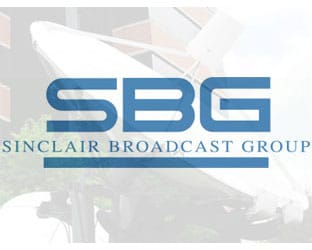In December 2018, Jane Hinckley Halprin succeeded Richard Sippel as the FCC’s Administrative Law Judge. Some thought she’d make headlines for moving forward with a hearing designation order centered on Sinclair Broadcast Group‘s now-aborted merger with Tribune Media.
Nope.
Halprin on Tuesday (3/5) issued a five-page order that puts an end to any inquiry into Sinclair’s actions as they pertain to the attempted acquisition of Tribune. Why?
“The dissolution of the Sinclair/Tribune consolidation is a circumstance that would
render a hearing at this time in the context of this proceeding an academic exercise,” she said.
That’s because, as Halprin notes, “The licenses at issue are now part of an unrelated proposed transaction not involving Sinclair.” Rather, the Tribune Media stations are poised to become Nexstar Media Group properties, pending regulatory approval.
But, Sinclair shouldn’t be magically absolved of its transgressions, Halprin warns.
“Honesty with the Commission is a foundational requirement for a Commission licensee,” she says.
While the Hearing Designation Order is not moving forward, “That is not to say that Sinclair’s alleged misconduct is nullified or excused by the cancellation of its proposed deal with Tribune.”
In fact, Sinclair’s questionable behavior may be best looked into in a future proceeding involving a license assignment, transfer, or renewal, Halprin suggests.
“At that time, it may be determined that an examination of the misrepresentation and/or lack of candor allegations raised in this proceeding is warranted as part of a more general assessment of Sinclair’s basic character qualifications to be a Commission licensee,” she writes. “Absent a specific transaction or other proceeding to provide context for this unresolved character issue, however, conducting a hearing at this time would not be a prudent use of Commission time and resources.”
The FCC in July 2018 effectively sent Sinclair a giant stink bomb, in the form of a 22-page Hearing Designation Order (HDO) that ultimately led to the dissolution of its $3.9 billion Tribune Media merger.
Among the applications filed with the Commission, three stuck out like sore thumbs. These deals raised “significant questions as to whether those proposed divestitures were in fact ‘sham’ transactions,” the FCC said.
The Commission pointed to Sinclair’s original plan to sell WGN-9 in Chicago to David Fader — called “an individual with no prior experience in broadcasting who currently serves as CEO of a company in which Sinclair’s executive chairman has a controlling interest.” That would be Atlantic Automotive Group.
As has been extensively reported by RBR+TVBR, Fader has a close relationship with David D. Smith, who served as President/CEO of Sinclair until stepping aside from day-to-day duties in January 2017. Fader in 1997 was President/CEO of Summa Holdings Ltd., and in January of that year decided to have his Heritage Automotive Group purchase a pair of Saturn dealerships in the Baltimore area, and the rights to a third in Annapolis. To help finance future expansion, leading to the creation of ACG, Smith came on as a partner at Summa.
As disclosed by the FCC, Smith is a member of Atlantic’s board of directors. Further, Atlantic is an advertiser and tenant of Sinclair.
Also of concern to the FCC: The purchase price Fader would have paid for WGN-9, and an option allowing Sinclair to eventually acquire the station. RBR+TVBR coverage of the transaction from March 21 was cited as a source.
The FCC also, as expected, called into question spins of KDAF-TV in Dallas and KIAH-TV in Houston to Cunningham Broadcasting, a company that takes the maiden name of the wife of Sinclair’s founder. And, it called out the acquisition of the voting shares of Cunningham by Michael Anderson, a Sinclair associate, “for a $400,000 sales price that is far below market value.”
Then there is Sinclair’s apparent guarantee of $53.6 million of Cunningham’s debt.
“Such facts raise questions about whether Sinclair was the real party in interest under Commission rules and precedents and attempted to skirt the Commission’s broadcast
ownership rules,” the FCC noted in the HDO.
Halprin’s decision was greeted with pleasure by American Cable Association President/CEO Matthew M. Polka.
He noted that the decision underscored the importance of the ACA’s pending request for expedited FCC review of the next set of Sinclair TV station licenses coming up for renewal.
“Halprin emphasized that the most serious charge against Sinclair — that it lied to the FCC — was neither ‘nullified nor excused’ by this dismissal,” Polka said. “Instead, because the charge is now ‘untethered’ to a specific transfer application, it ‘would be more appropriately considered in the context of a future proceeding in which Sinclair is seeking FCC approval, for example, involving an application for a license assignment, transfer, or control.’ Fortunately, such a proceeding already exists—one in which the public will have the opportunity to participate.”
Four months ago, ACA asked the FCC to expedite the next set of license renewals so that the FCC can resolve these questions sooner rather than later.
“We continue to urge the FCC to do so,” Polka said. “As Judge Halprin made clear today, the FCC will have to grapple with Sinclair’s behavior one way or the other. All parties — including Sinclair itself — will benefit if this happens sooner rather than later.”





